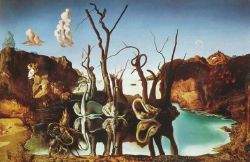Attention is one of the foundations of awareness. Without it, we have no protection against information which is poured into us. Without attention we cannot transform information into wisdom. Then without choice we ingest whatever is put in front of us.
Without attention we risk becoming servomechanisms of technology, clicking compulsively with no clear direction. An open mind without goals is very different from the lack of direction of a mind frenzied with the longing to be filled. Lacking attention we have no control over our intentions nor critical perspective for interpreting information.
Attention is an ingredient of mindfulness – the awareness of our inner state which includes our body, feelings, and sensations. Meditation techniques begin with focused attention and concentration.
With attention, awareness, mindfulness, “presence” and a quiet mind, we are nourished by our interiority instead of force fed by external stimuli. As attention is connected to our identity, weak attention produces a weak identity.
B. Alan Wallace, on page 6 of The Attention Revolution (Wisdom Publications, Boston, 2006) writes that “One progresses through each stage by rooting out progressively more subtle forms of the two obstacles: mental agitation and dullness.”
The strenghtening of the inner attention and concentration is a requisite for the progress toward an expanded awareness, which, in turn, “being lucid harmony (sattva) in action, dissolves dullness and quietens the restlessness of the mind and gently, but steadily changes its very substance. This change need not be spectacular; it may be hardly noticeable; yet it is a deep and fundamental shift from darkness to light, from inadvertence to awareness” (Nisargadatta Maharaj, I Am That, Acorn Press, Durham, 1982, p. 271).
TV definitely tends toward dulling the mind, as documented by Jerry Mander and many others. TV keeps the viewer glued to the screen both by giving a linear narrative and by quick edits and visual stimulation that leverage our ancient instinct. We can’t help but attend to any changes in our visual space, which in ancient times gave better chances of survival against predators. This mechanism of mental stimulation is even more present on the Internet than on TV because of its multitasking possibilities.
Also, the Internet, being composed mostly of small pieces of information competing for our attention, has a less linear narrative. Furthermore, the Internet, smartphones, and videogames don’t have a temporal structure; thus, there is no clear “beginning” or “end,” as in traditional media such as TV, where programs start and stop on a schedule. Thus, there’s no inherent end to online interaction. Online, we expect answers immediately, and with that expectation reinforced, our endlessly curious mind is pulled further into the current.
The positive side of dullness is relaxation and the positive side of mental agitation is a curious, active mind. A relaxed though active mind is a marker of a receptive, creative, and balanced mind. TV and the Internet seduce us by simulating those states.
For some time, I thought that TV promoted mostly dullness while the Internet causes mental restlessness, but those states are complementary and support each other. The two media are coming closer to each other. TV is presenting more “multitasking” capabilities by running text on the screen and by using quick cuts and edits, while the Internet is becoming more passive due to the presence of videos and an endless “real-time” stream of information (news sites, blog entries, Twitter, Facebook, Google+) that we browse mostly in a passive way. A great majority of people are lurkers and don’t contribute to the user-generated content, and even the active ones spend more time in a passive state rather than commenting or writing their own entries.
Also, TV programs have now less temporal structure. Shows and news morph into each other in a continuous stream, where there’s no more “end.” Jerry Mander, considering an increase in hyperactivity among children due to TV, writes in In the Absence of the Sacred (Sierra Club, San Francisco, 1991) that “television viewing, if it can be compared to a drug experience, seems to have many of the characteristics of Valium and other tranquilizers. But that is only half of the story. Actually, if television is a drug, it is not really Valium; it is speed” (p. 66).
Per svariati impegni in questo periodo non riesco piu’ a gestire la doppia lingua. Poiche’ la maggior parte dei visitatori di questo blog arriva dall’estero, dovendo scegliere, ho optato temporaneamente per una lingua internationale. Credo che la maggior parte dei visitatori italiani di questo sito conosca l’inglese.
Clicca sulla bandierina britannica in alto a destra per l’articolo in inglese.

 [en]
[en]